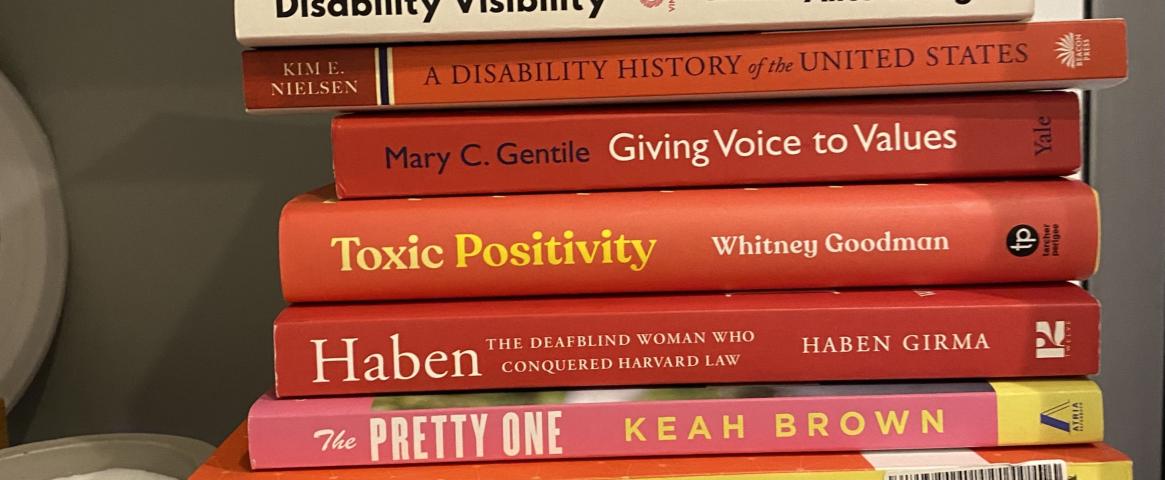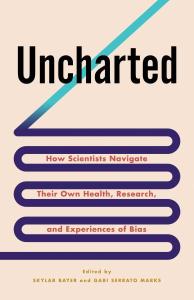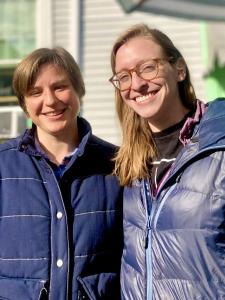
Skylar Bayer and Gabi Serrato Marks—Uncharted: How Scientists Navigate Their Own Health, Research, and Experiences of Bias
THEIR OWN HEALTH, RESEARCH, AND EXPERIENCES OF BIAS
Skylar Bayer (NASW Member) and Gabi Serrato Marks, Eds.
Columbia University Press, August 8, 2023
Hardcover, $120, Paperback $30, Kindle, $14.99
ISBN-10: 0231203632, ISBN-13:9780231203630
ASIN: B0BY4DG9MV
Editors: Skylar Bayer (NASW Member) and Gabi Serrato Marks Contributors: Mpho Kgoadi, Jenn Pickering, Maureen J. Hayden, Sami Chen, Amanda Heidt (NASW Member), Daisy Shearer, Lauren A. White, Anonymous 1, Skylar Bayer (NASW Member), Furaha Asani, Alma C. Schrage, Alexander G. Steele, Sophie Fern, Sophie Okolo, Richard Wendell Mankin, Anonymous 2, Juniper L. Simonis, Syreeta L. Nolan, Amanda O’Brien, Stephanie Schroeder, Divya M. Persaud, Glyn Everett, Emma Tung Corcoran, Leehi Yona, Katie Harazin, Sunshine Menezes, Olivia Bernard, Jennifer L. Piatek, Taylor Francisco, Gabi Serrato Marks, Vincent Martin, Michele Cooke
Bayer reports:
Both Gabi and I dealt with unexpected medical diagnoses during our Ph.D. programs. Gabi was diagnosed with Ehlers-Danlos syndrome, a collagen disorder that causes widespread pain. I was diagnosed with a heart condition called polymorphic arrhythmia that required me to have an implantable cardioverter defibrillator surgically implanted, which ended my scientific scuba-diving career. We found our separate ways to The Story Collider, a non-profit dedicated to storytelling about science, to share our stories of how our medical challenges intersected with and impacted our lives as scientists.
In 2018, we got together and decided that we wanted to create a project or a book with lots of stories about disability and medical conditions from scientists. Our goal was to share a diverse group of stories about disability and medical conditions in STEM, help contributors tell their stories in their own voices, and provide representation for disabled scientists everywhere. We had no idea that this would take 5 years!We issued two calls for pitches in 2018 and 2019 through Twitter, wrote an op-ed in Scientific American, and bought a book on how to write book proposals. In 2020, an editor from Columbia University Press approached Gabi about book ideas, so we wrote a proposal that included some of our writing and a summary of the pitches we had received.
After our proposal was approved, we recruited more contributors and applied to the Alfred P. Sloan Foundation’s Book Grants Program so we could pay all the contributors ahead of time. In addition to awarding us funding, Sloan gave us extra funds to hire an illustrator to develop portraits and illustrations for each chapter.
Working on this book with 30 contributors was incredibly rewarding. We have learned a lot about book writing, networking, and the publishing industry. We greatly appreciated having one another to lean on during this process—working alone as an editor would’ve seemed impossible. Our advice for others developing a similar anthology is to work with partners, take your time to develop your book carefully, be patient, and revisit your goals for the book often.
Contact info:
- Skylar Bayer: 617-771-5173, skylarrb@gmail.com, https://skylarbayer.wordpress.com/
X (Twitter): @drsrbayer
Bluesky: @drsrbayer.bsky.social - Gabi Serrato Marks: 617-233-3298, gserratomarks@gmail.com
X (Twitter): @gserratomarks
Bluesky: @gserratomarks.bsky.social - Book: Uncharted: How Scientists Navigate Their Own Health, Research, and Experiences of Bias, https://uncharted.ck.page/signup
- Publicist: Robyn Massey, 347-260-1085, rm3785@columbia.edu
NASW members: will your book be published soon? Promote it by submitting your report for Advance Copy.
Tell your fellow NASW members how you came up with the idea for your book, developed a proposal, found an agent and publisher, funded and conducted research, and put the book together. Include what you wish you had known before you began working on your book, or had done differently.
See https://www.nasw.org/advance-copy-submission-guidelines.
View Advance Copy archives at https://www.nasw.org/member-article/advance-copy.
Thinking of writing a book? If you are a NASW member, you may access a list of more than 200 books and online resources to help you craft your book proposal, find an agent and funding sources, negotiate your contract, learn about self-publishing, publicize and market your book, and more at https://www.nasw.org/article/write-book.
View the recording of a recent Advance Copy Virtual Business Chat, A Primer for Authors on Book Publicity. NASW mhttps://www.nasw.org/events/nasw-science-writers-virtual-events-video-recording-archive-2023-members-onlyember login required.
Send book info and questions about book publishing to Lynne Lamberg, NASW book editor, llamberg@nasw.org.
Follow @LynneLamberg on Twitter for news about science/medical books, writing, and NASW authors.
Banner image adapted from original photo by Gabi Serrato Marks.
Advance Copy
The path from idea to book may take myriad routes. The Advance Copy column, started in 2000 by NASW volunteer book editor Lynne Lamberg, features NASW authors telling the stories behind their books. Authors are asked to report how they got their idea, honed it into a proposal, found an agent and a publisher, funded and conducted their research, and organized their writing process. They also are asked to share what they wish they’d known when they started or would do differently next time, and what advice they can offer aspiring authors. Lamberg edits the authors’ answers to produce the Advance Copy reports.
NASW members: Will your book be published soon? Visit www.nasw.org/advance-copy-submission-guidelines for information on submitting your report.
Publication of NASW author reports in Advance Copy does not constitute NASW's endorsement of any publication or the ideas, values, or material contained within or espoused by authors or their books. We hope this column stimulates productive discussions on important topics now and in the future as both science and societies progress. We welcome your discussion in the comments section below.





